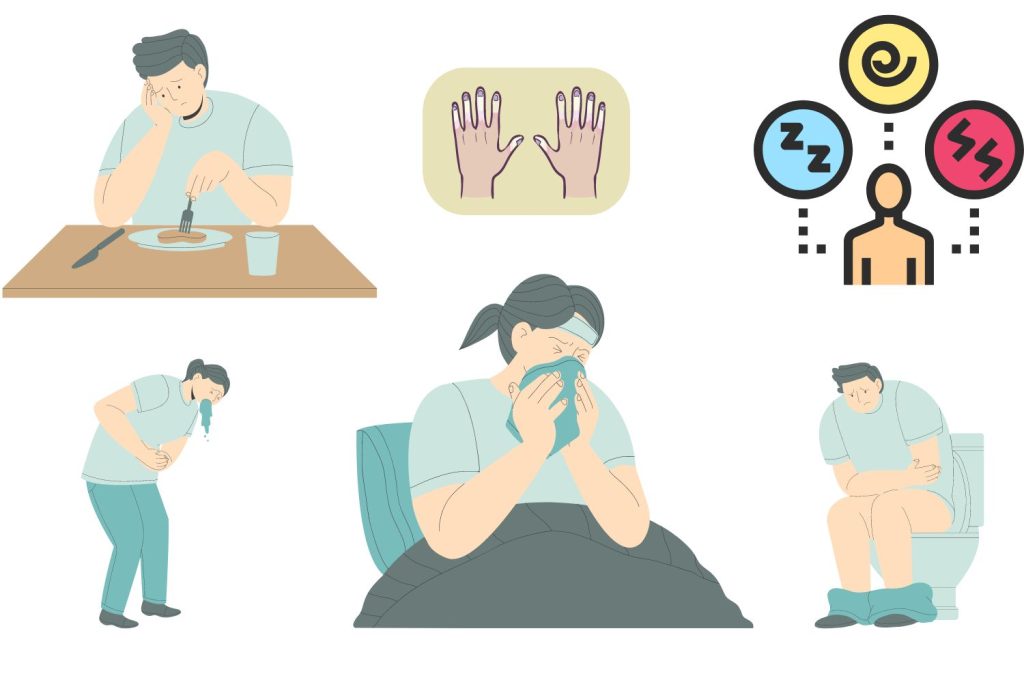
What is Black Fungus in Human?
Black fungal disease (BFD), commonly known as mucormycosis or black mold infection, is a severe fungal infection caused by the mucormycetes group of molds. This illness is becoming a growing issue in many regions of the globe, including India, where it has been documented as a secondary infection among COVID-19 patients. Those with weaker immune systems, such as those with diabetes, cancer, or HIV, are also increasingly susceptible.

What Are The Symptoms Of Black Fungus In Human
Symptoms of black fungus differ based on the afflicted body area. The infection can damage the lungs, sinuses, brain, and skin, among other organs. Facial swelling and discomfort, nasal congestion and discharge, headache, fever, cough, chest pain, shortness of breath, skin blackening or discoloration, impaired vision, double vision, and altered mental state are the most prevalent symptoms.
Symptoms of pulmonary mucormycosis resemble those of common lung infections, including fever, cough, chest discomfort, shortness of breath, and a bloody cough. Invasion of the fungus into the sinuses can result in face edema, discomfort, and fever. In certain instances, the infection can migrate to the brain, causing headaches, mental status changes, and seizures.
Who Are Most Affected By Black Fungus?
These fungi are frequently discovered in soil, decomposing plants, and manure. These fungi cause infection when they enter the body by a cut, a wound, or inhalation. Those with compromised immune systems are more likely to get black fungus illness. This includes those with diabetes, cancer, or HIV, as well as those who have undergone organ or stem cell transplantation.

Black Fungus Diagnosis
Typically, black fungus illness is diagnosed by combining symptoms, medical history, and imaging testing. A tissue sample may be required for diagnostic confirmation. Imaging examinations, such as CT scans and MRIs, can assist pinpoint the infection’s site and extent.
Black Fungus Treatment
Black fungus illness is normally treated with antifungal drugs, surgical removal of affected tissue, and supportive care. The antifungal drug used depends on the infection’s severity and location. In situations when the infection has gone to the sinuses or brain, surgery is required. In certain instances, amputation may be required to remove contaminated tissue.

Black Fungus Natural Remedy
There are no natural therapies available for black fungus illness. If you feel you have black fungus illness, get emergency medical assistance. Early detection and treatment can aid in preventing severe consequences.
Conclusion
In conclusion, black fungal illness is a severe fungal infection produced by the mucormycetes fungus group. This illness is becoming a growing issue in many regions of the globe, including India, where it has been documented as a secondary infection among COVID-19 patients. Depending on the afflicted body area, black fungus symptoms vary, and the infection can affect many body parts, including the lungs, sinuses, brain, and skin.

Those with compromised immune systems are more likely to get black fungus illness. If you suffer any signs of black fungus illness, you should seek emergency medical assistance. Early detection and treatment can aid in preventing severe consequences.
